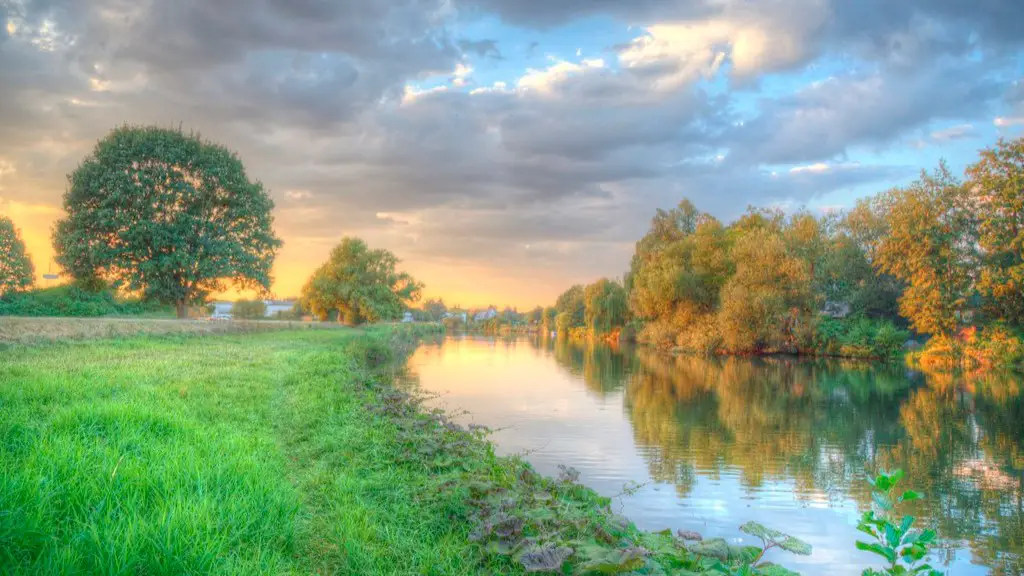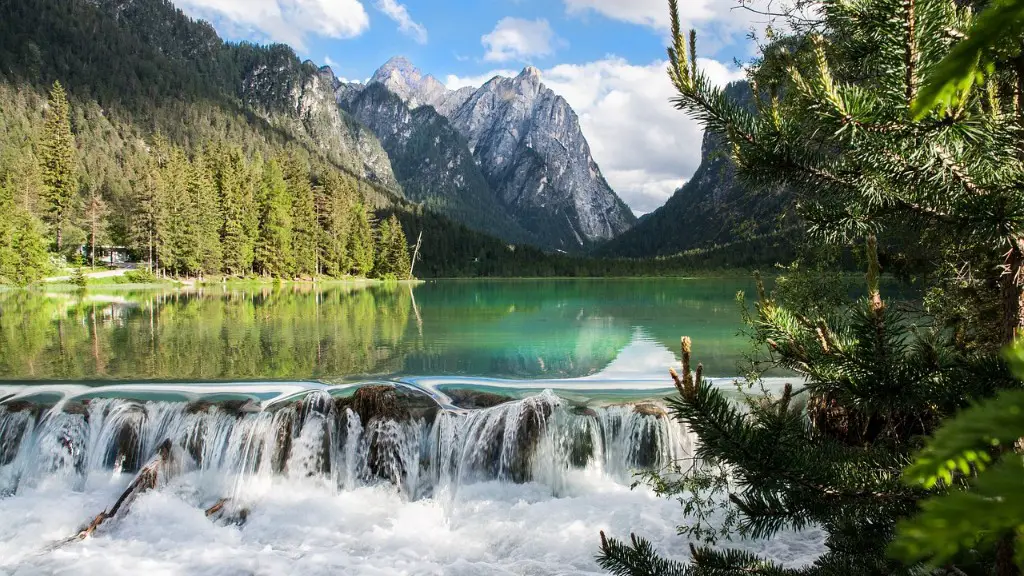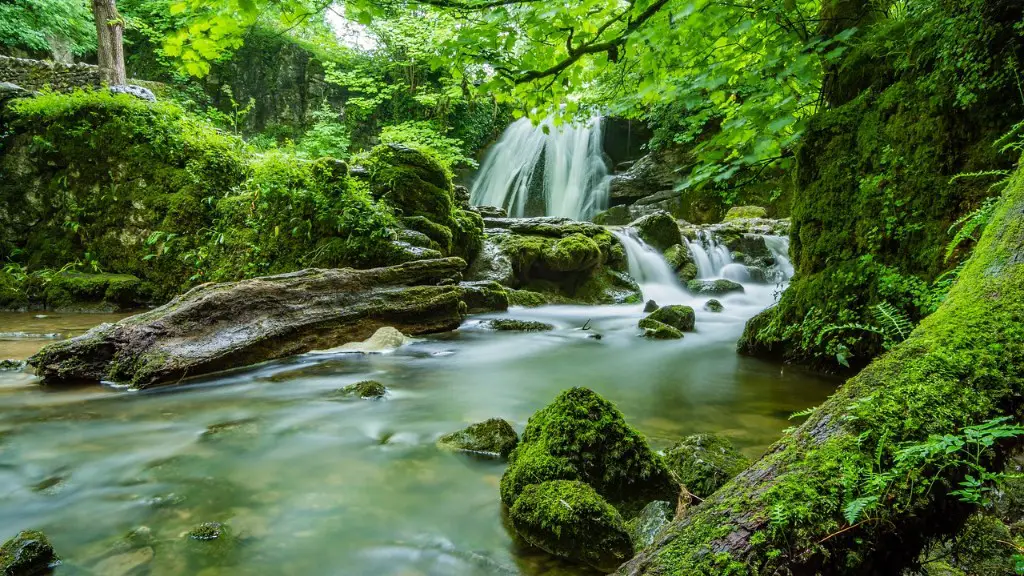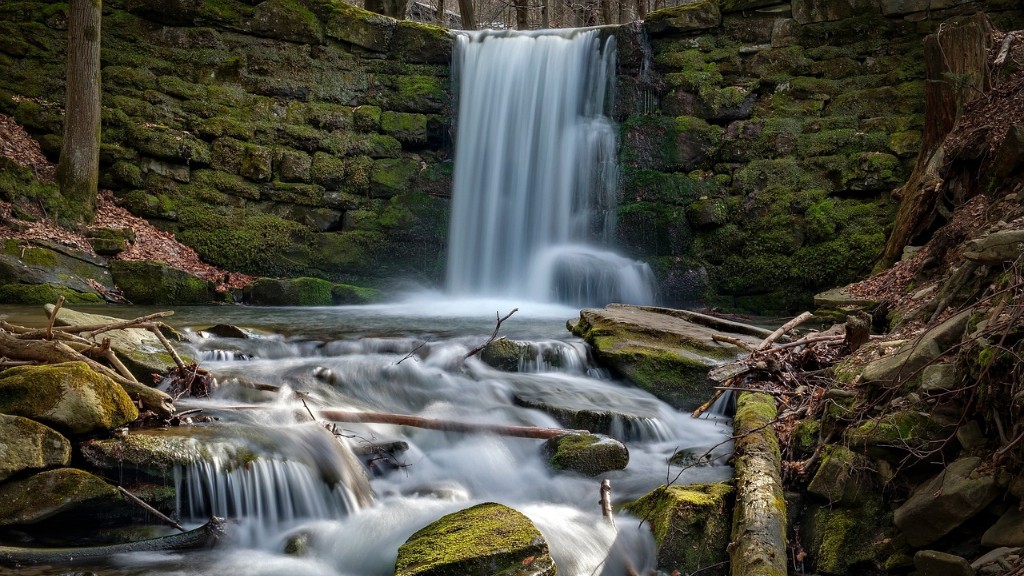The Mississippi River is one of the most famous waterways in the world. It is an important river system that flows through 10 different states in the United States and is the main river system in North America. In this article we will be looking at which states the Mississippi River goes through and what it means for them.
The Mississippi River starts in northwestern Minnesota before flowing south through the states of Wisconsin, Iowa, Illinois, Missouri, Kentucky, Tennessee, Arkansas, Mississippi, and Louisiana. The river has been an important part of the local culture and commerce in each of these states for centuries.
In addition to providing a waterway for commerce, the Mississippi River has had a major role in the history and culture of the states that it runs through. The river is a major source of agriculture, providing irrigation and natural resources. The river is also an important source of recreation and tourism, with many towns relying on the river for their livelihoods.
The Mississippi River also serves as an important source of energy for the states that it passes through. Hydroelectric power plants line the river in various places, providing energy to many communities. The river has also been used for transportation for many years, making it an important part of the infrastructure.
The river has had an environmental impact as well, with many species of animals and plants relying on the river for their habitat. The river has also been impacted by pollution and overfishing, leading to changes in the habitats along its banks.
Finally, the Mississippi River is an important part of the national economy. It provides a major transportation route for commerce and is a major source of water for states downstream. The river is also an important part of the tourism industry, with many people visiting the river each year.
Environmental Impact
The Mississippi River is an important part of the ecosystems of the states it passes through. For centuries, the river has provided habitats for many different species of plants and animals. However, human activities have had a major impact on the river, leading to changes in the habitats and communities along its banks.
Pollution is a major concern for the Mississippi River. The overuse of chemicals and other pollutants have had a negative impact on the quality of the water. This has led to changes in the habitats along the river and has caused the habitats to become less suitable for many species.
Overfishing is also a major concern for the river. The over-harvesting of certain fish species, such as catfish and largemouth bass, has caused a drop in the populations of these species. This has also led to changes in the habitats along the river, leading to the loss of important food sources for other species.
Finally, the construction of dams and levees has had an impact on the habitats along the river. This has caused changes in the topography and has affected the flow of the river, leading to changes in the habitats.
Economic Impact
The Mississippi River has had an important role in the economic development of the states that it passes through. The river has been used for centuries for transportation, making it an important part of the infrastructure of many of these states.
The river has also been an important source of power for many of these states. The hydroelectric power plants that line the river provide electricity to many communities in each of these states. This electricity helps to power homes and businesses in each of these states.
Finally, the river has been an important source of tourism for these states. Many people visit the river each year, either to fish or just to enjoy the scenery. The river serves as an important economic engine for the states that it passes through, providing jobs for many people.
Legal Impact
The Mississippi River is an important part of the legal landscape of the states it passes through. The river is subject to numerous laws and regulations, from water rights to commercial navigation. These laws and regulations help to ensure that the river is protected and used in a responsible manner. The states that are home to the Mississippi River also have legislation in place to ensure that the river is used responsibly.
These laws and regulations help to ensure that the river is protected and used in a responsible manner. They also help to ensure that the states that the river flows through are able to benefit economically and socially from its use. This helps to ensure that the river remains an important part of the landscape and culture of these states.
Political Impact
The Mississippi River is an important part of politics in the states that it runs through. All 10 states have Congressmen and Senators that are focused on the development and protection of the river.
The river is also an important part of the presidential campaigns. Many candidates have used the river as a symbol of their policies and plans for the country. The Mississippi River is seen as a symbol of American unity and identity, and candidates often use it to make their point.
Finally, the river has long been an important part of political debates and discourse about the environment. Candidates often speak about the importance of protecting the river and its surrounding ecosystems. They also often discuss the need to use the river responsibly, in order to ensure that the states that it passes through are able to benefit economically and socially.
Cultural Impact
The Mississippi River has had an important role in the culture of the states it passes through. A wide variety of cultures have been formed along the banks of the river, from the Mississippi Delta to the Upper Midwest. These cultures are often shaped by the river, with its unique geography providing the backdrop for stories and music.
The river has also been an important part of literature, with many writers using it as inspiration for their works. Writers such as Mark Twain, F. Scott Fitzgerald, and William Faulkner have used the river in their writing, often using it as a backdrop for their stories.
Finally, the river is often seen as a source of American pride, with many people seeing it as a symbol of the nation’s spirit and identity. The river is often seen as a symbol of strength and resilience, with many people taking pride in its accomplishments.
Conclusion
The Mississippi River is an important part of the history and culture of the states that it passes through. It is an important source of commerce, recreation, and energy for these states, and its importance is reflected in its legal, political, and cultural significance. It is clear that the Mississippi River is an important part of the United States, and an important part of the lives of the people who live along its banks.





